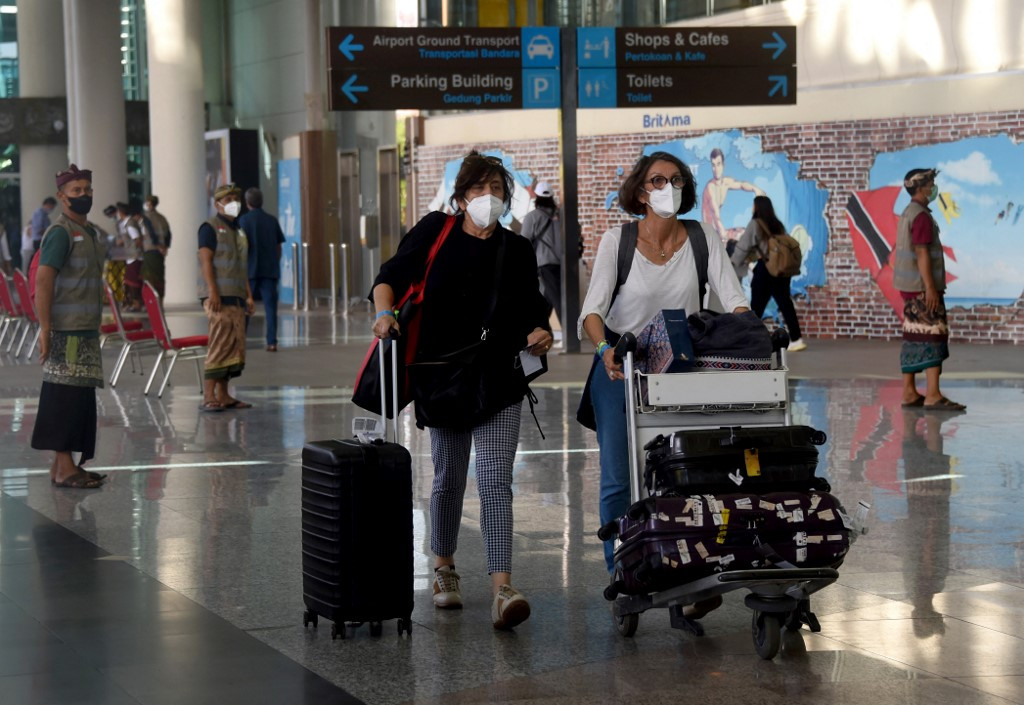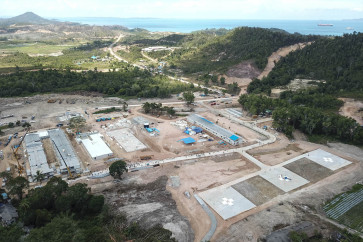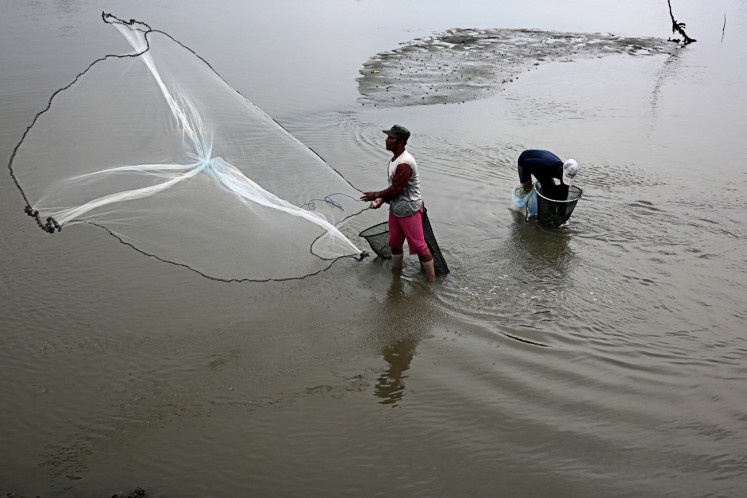Popular Reads
Top Results
Can't find what you're looking for?
View all search resultsPopular Reads
Top Results
Can't find what you're looking for?
View all search resultsGovt prepares road map to endemicity
Officials work together with independent experts on transition as case numbers decline.
Change text size
Gift Premium Articles
to Anyone
A
s the Omicron-fueled surge of infections begins to wane in Indonesia, the government has announced a plan to create an outline to help the country's transition to endemicity and return to normal life after two years of battling the COVID-19 pandemic.
Health Ministry spokesperson Siti Nadia Tarmizi said authorities were working together with independent epidemiologists and other experts to develop the so-called "road map to endemicity".
“Although COVID-19 infections in the country are not yet completely under control, sooner or later it will eventually shift to an endemic phase. We’ll create this road map so that we can be well prepared to live with the coronavirus," Nadia told The Jakarta Post on Monday.
In broad terms, a pandemic stage is when an illness is spreading quickly across the globe and is posing a danger to the safety of the masses. An illness becomes endemic when the rates become static in a given geographical location, meaning that the pathogen causing the disease is likely to remain in circulation without causing large outbreaks.
Nadia said the road map would consist of three main stages: the deceleration phase, during which cases gradually declined for a long period of time; the pre-pandemic phase for when infections were brought under control; and finally the endemic phase.
She said the government was currently setting epidemiological parameters for each phase, including the benchmark for testing positivity rates, virus reproduction rates (Rt), hospitalizations and deaths. These indicators will be important as groundwork to further ease restrictions.
"For COVID-19 to be declared an endemic, the virus’ effective reproduction [Rt] number must decrease below 1, hospital bed occupancy rates must stand below 5 percent, and the positivity rate must stand below 1 percent, among other things,” Nadia said.
The Rt rate represents the number of new infections estimated to stem from a single case at a particular time.
Easing curbs
As part of Indonesia's gradual shift to endemicity earlier this month the government cut the mandatory quarantine period for international travelers from three days to just one day. It also lifted mandatory antigen or PCR testing for fully vaccinated domestic travelers, marking the first such move since it implemented the policy in July last year.
Authorities also waived the mandatory quarantine for fully vaccinated international visitors to popular tourist destination Bali, with officials saying that the no-quarantine policy would be expanded to other parts of the country by April 1.
Nadia said the government was planning to further ease restrictions in the Islamic holy month of Ramadan, which is celebrated by 86 percent of Indonesia's population and is expected to start on April 2.
"We've lifted social-distancing requirements in mosques and there's a possibility that we might lift the mudik [homeward exodus] ban if the COVID-19 situation continues to improve," she said, adding that the government would ease health rules cautiously and would immediately tighten curbs if cases spiked again.
Over 18 million people participated in the Idul Fitri tradition of mudik each year before the pandemic, but the government has banned the practice in the past two years to curb the spread of COVID-19, as cases usually spiked after major public holidays.
'Not yet endemic'
Indonesia has been seeing a gradual decline in the number of daily new cases since it reported over 64,700 cases on Feb. 16, a record high in the past three months following the discovery of the first known Omicron case in the country.
On Monday, some 9,600 new cases were recorded, a 54 percent decrease from the 21,300 cases reported a week before. Nationwide bed occupancy rates also dropped from 28 percent last week to 21 percent, while positivity rates decreased from 13.5 percent last week to 11.5 percent.
Despite the improvements, Coordinating Maritime Affairs and Investment Minister Luhut Pandjaitan, who leads the COVID-19 response in Java and Bali, said that Indonesia was not yet ready to enter the endemic phase.
"Some countries, such as Malaysia and Saudi Arabia have declared the transition to endemicity. But compared with those countries, we're still falling behind in terms of COVID-19 [primary] vaccination and booster shots," Luhut said on Monday as reported by kompas.com.
By Tuesday, 73 percent of the 208.2 million targeted population nationwide had been fully vaccinated. This makes up around 55 percent of Indonesia’s total 273 million population. But only 7.1 percent of the targeted population had received booster shots.
Nadia said the government would continue to accelerate the vaccine rollout in the country, aiming to fully inoculate 70 percent of the total population by the end of April.
"Vaccination remains the most important step in curbing the virus and to transition to endemicity," she said.
Experts urges caution
Epidemiologist Dicky Budiman urged the government to remain cautious in declaring endemicity and easing restrictions.
“Don’t rush to declare endemic status and always make sure to strengthen surveillance – testing, tracing and active case finding – before easing restrictions,” Dicky said recently. “I want to emphasize that the pandemic is not over yet and Omicron will not be the last variant of concern that we will encounter.”
Mike Ryan, executive director of the World Health Organization's (WHO) health emergencies program, has also urged countries to remain cautious in using the term endemic.
"Remember endemic HIV and endemic tuberculosis and endemic malaria kill millions of people on this planet every year. So please don't equate endemic with [something] good," he said on Monday, as quoted from the WHO Twitter account.
"So just changing from a pandemic to an endemic is just changing the label, that doesn't change the challenge we face," he added.
Ryan said endemic diseases required strong control programs to reduce infections and deaths, emphasizing the importance of sustained protection of vulnerable groups and strong healthcare systems to deal with COVID-19 in the long run.










